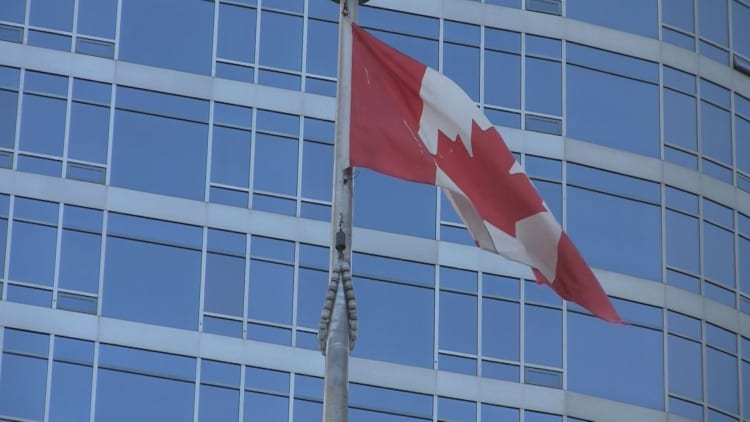
Searches asking "how to move to Canada" are spiking on Google as U.S. voters digest Donald Trump's sweeping win in the Super Tuesday Republican contests.
Trump claimed victories in seven states — Alabama, Arkansas, Georgia, Massachusetts, Tennessee, Vermont and Virginia.
And it seems to have sparked a renewed interest in packing up for a life north of the border.
A quick Google search of 'How to move to Canada' brings up results including the country's main immigration page, working abroad programs and an eight-step wiki guide for how to make the move.
But this isn't the first time that Trump's candidacy has sent eyes toward the Great White North.
Earlier this year, a tongue-in-cheek tourism campaign for Cape Breton Island — near Maine -— attempted to lure Americans by waxing lyrical about Canada's liberal laws around religious diversity, abortion laws and affordable housing.
"Don't wait until Donald Trump is elected president to find somewhere else to live! Start now, that way, on election day, you just hop on a bus to start your new life in Cape Breton," it read.
The website's creator has since written on the contact page that his team has been overwhelmed by interest, adding that they welcome everyone, regardless of their political affiliation.
But whether a mass exodus to Canada would potentially create a rift between the North American neighbors is unclear.
While Trump told local reporters in September that he "loves Canada" and opposed building a wall at the Canadian border — countering a much-ridiculed idea put forward during Scott Walker's campaign for the Republican nomination —- the admiration might not be mutual.
When asked on social media whether he would stand up to Trump and his "hateful rhetoric," newly elected Canadian Prime Minister Justin Trudeau told a town hall meeting run by Canada's Maclean's magazine in December that he would respect voters' decisions, but stopped short of supporting Trump's tactics.
"It's going to be important … to be able to have a positive relationship with whoever Americans choose as their president," Trudeau said.
"I don't think it comes as a surprise to anyone that I stand firmly against the politics of division, the politics of fear, the politics of intolerance or hateful rhetoric," the prime minister added. "If we allow politicians to succeed by scaring people, we don't actually end up any safer. Fear doesn't make us safer. It makes us weaker."

